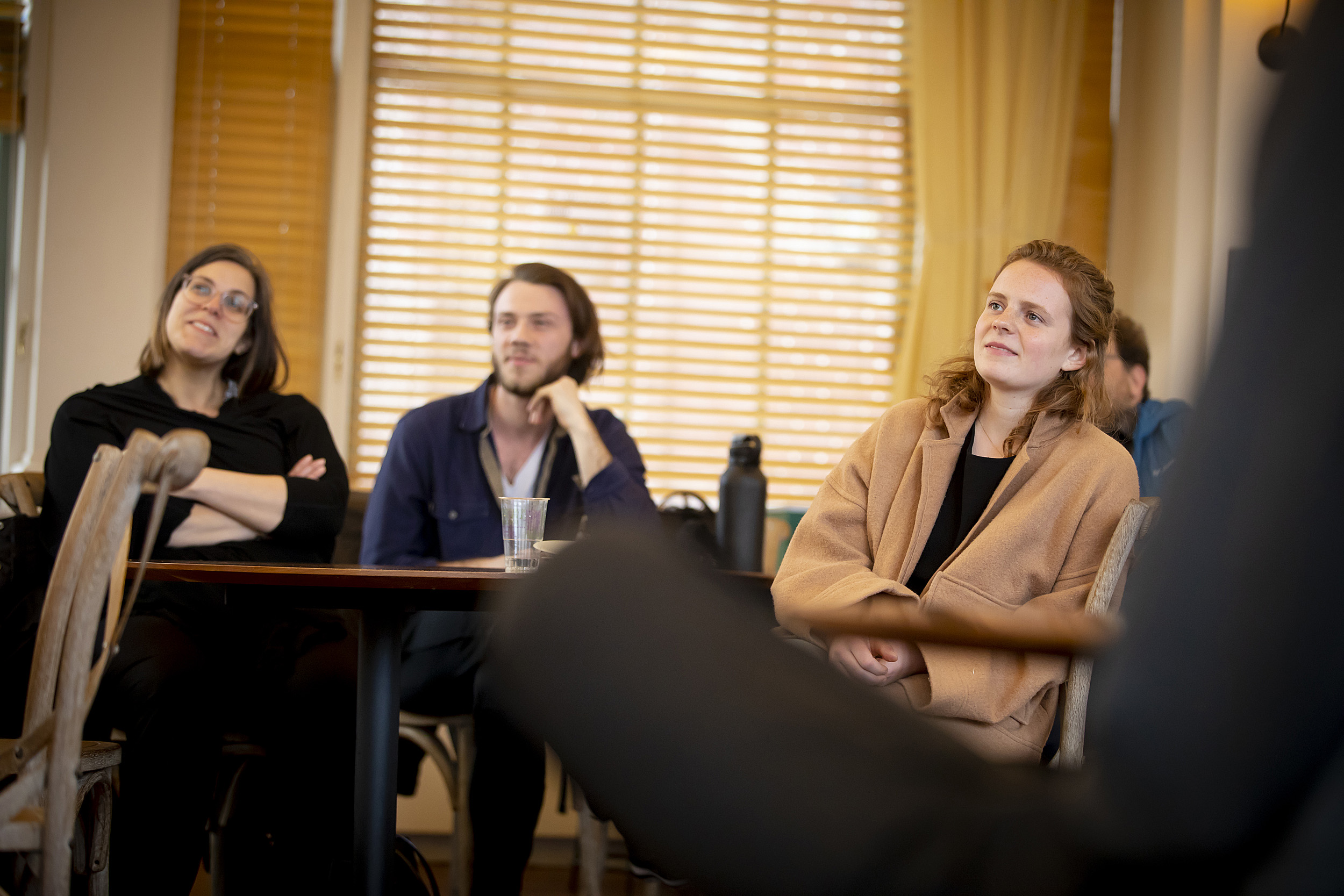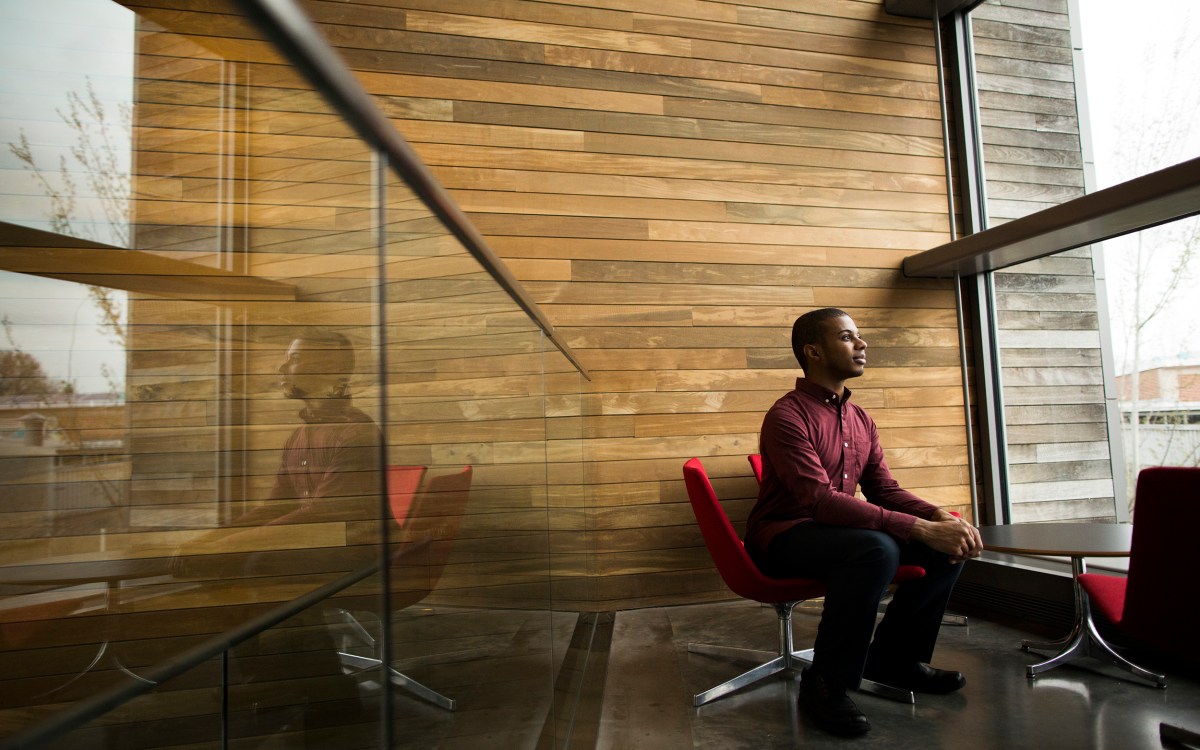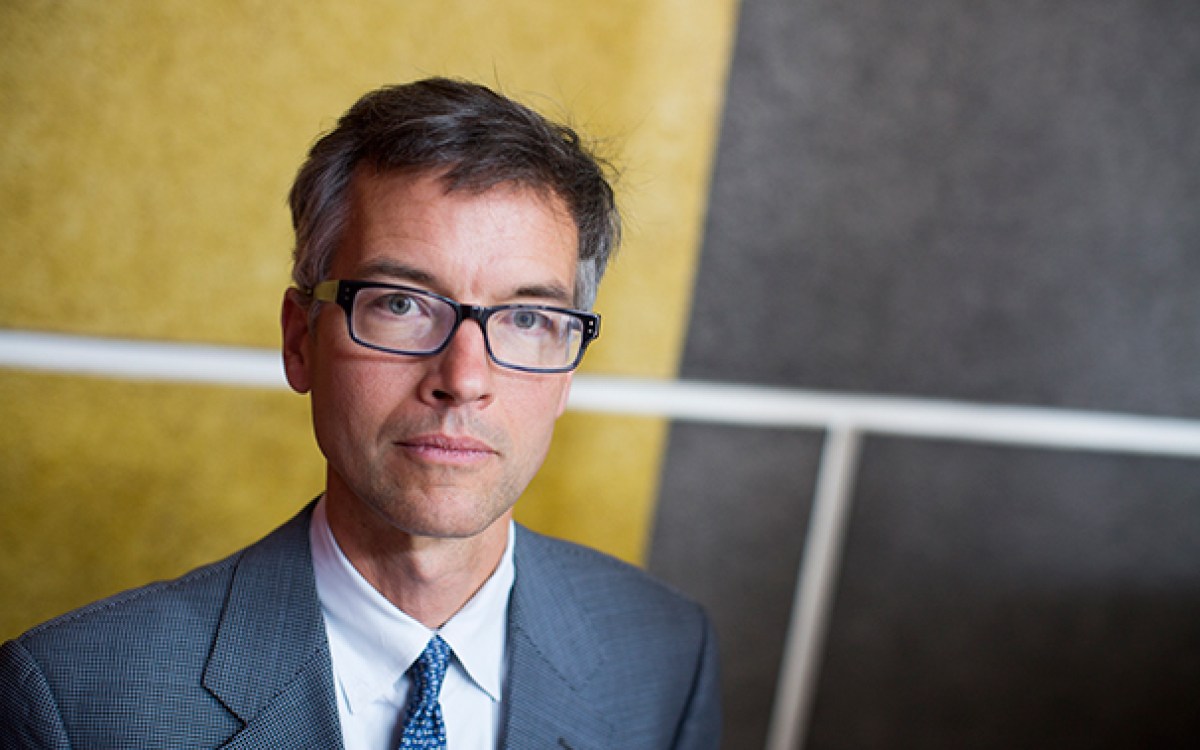
Audience members listen as students tell their stories as part of the Transcript Project.
Rose Lincoln/Harvard Staff Photographer
Stories get an A+
Students celebrate the transforming experiences behind their grades
While filming a documentary about relationships between longtime white residents of Lewiston, Maine, and the city’s Somali refugee community, Jacob Roberts ’19 attended his first Somali wedding, almost crashed in a hot air balloon, and learned that academic fulfilment extends far beyond a transcript.
Roberts recounted these experiences at an open mic celebration for The Transcript Project, a creative contest in its second year that offers undergraduates the chance to rethink their academic trajectory at Harvard through artistic expression. This year, students were asked to submit reflections on a transformative semester on campus, and the entries were celebrated at the open mic event on Tuesday.
Roberts’s submission focused on “Nonfiction Video Projects,” a course in which students filmed a documentary during the summer and edited the footage in the fall. His experience exemplified the mission that Robin Kelsey, dean of arts and humanities and Shirley Carter Burden Professor of Photography, set for the Transcript Project.
“The transcript is a source of anxiety, shame, or inappropriate pride, depending on whose it is,” Kelsey told an audience of students and faculty at the celebration. “Instead of looking at the grades, what if we looked at all the stories that are latent in the transcript?”
“[At Harvard], there are opportunities for academic engagement that force you to go out into the world and have real, exciting, odd experiences,” said Roberts, who’s concentrating in Theater, Dance & Media. “In this setting, outside of traditional academia, you can find a way to put yourself into the shoes of and understand people of different backgrounds who have stories that are completely different from yours, and your stories can intersect.”
At the event, students highlighted their experiences taking specific classes, studying abroad, and learning outside the classroom. The grades they got were inconsequential; instead, students focused on the life lessons they gained from their course materials.
For Laura Murphy, the celebration and contest offered a chance to combine self-reflection and love of creative writing. In an essay, “Narratives Beyond Letters,” Murphy ’22 recounted her first semester on campus as one of personal and academic discovery. While taking intimate first-year seminars alongside foundational humanities and science classes, Murphy looked to her readings to guide her through the transition to college.
“It was a fresh challenge to think in a new way about classes and to think more retrospectively about the stories beyond a few letters,” said Murphy, whose submission highlighted the ways that the settings of the stories she read for class permeated her everyday environment. “There’s a lot that goes into each class and you don’t realize it until you look back.”
Lauren Spohn ’20 explored the connections between the various seminar- and tutorial-based courses she took in the fall. To illustrate this, Spohn, who is concentrating in English, created a collection of her work on poster board, calling it a “hermeneutic circle of life.” She included papers and assignments from history, English, and philosophy classes covering subjects from “One Thousand and One Nights” to Nietzsche. In the spirit of the contest, Spohn also included part of her transcript on her poster, with the titles of her work written over her grades.
“For the first time [last semester], I felt like I was a storyteller,” said Spohn. “Most of my time in the humanities had been spent taking stories apart, and to use those analytical skills to make stories of my own was just amazing. I could think of myself as a scholar in a way that was not limited to the classroom but applies so far beyond it.”
A number of exemplary submissions to The Transcript Project, as selected by a faculty jury, will be celebrated at the end of the month.






